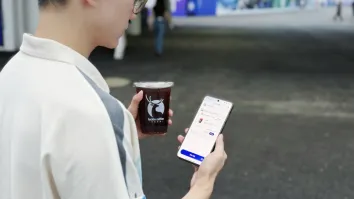
Vietnamese banks to be hounded by considerable credit challenges
Even despite operating environment developments.
Despite the stabilization in the operating environment and the positive qualitative developments at some banks, Vietnamese banks continue to face considerable credit challenges in terms of asset quality, and these challenges will take time to resolve.
According to research report from Moody’s Investors Service, following a period of very rapid credit growth through 2012, asset quality problems have remained acute, compounded by challenges in the economy, including lackluster domestic demand; the weak creditworthiness of SOEs; extensive related-party lending; poor reporting practices; and regulatory shortfalls. Together, these problems lead to a system-wide lack of transparency in regard to the true level of problem assets. The report estimates that the average non-performing assets ratio for Moody’s-rated banks in Vietnam amounted to around 7% of total assets at end-2013.
Here’s more from Moody’s Investors Service:
Our analysis of the banks’ asset quality involves a multi-stage process. We start with the reported NPL ratio (loans in categories 3 to 5 under Vietnam GAAP), and then add special mention loans (SMLs), because the SBV allows banks to restructure loans without moving them to a higher risk category.
Bank management has the discretion to keep borrowers out of their NPL categories if they believe they could still be economically viable. As a result, a large portion of these loans are classified in the SML category.
As seen in Exhibit 8, banks such as VietinBank, Sacombank and VIB reported the lowest share of loans in the NPL and SML categories at end-2013.
The second step of our asset quality analysis involves a qualitative assessment of other assets that we consider as problematic. These assets include:
1) Loans sold or transferred to third parties; these assets are typically booked as “receivables”. We have seen practices where banks sell/transfer assets (most likely problem loans) to other banks or third-party asset management companies.
Typically, such transactions do not involve cash, and mature within one to 12 months. The main benefit to the “seller” is that its NPL ratio improves.
At Moody’s-rated banks, the share of loans sold to third parties averages 3% of total assets.
2) VAMC bonds: the establishment of Vietnam Asset Management Company (VAMC) in late 2013 allows banks to transfer some of their bad assets to this institution.
Banks receive a special bond in return for their assets, and need to provision 20% against the special bond every year. At Moody’s-rated banks, the share of VAMC bonds averages 1% of total assets.
3) We also consider that banks are holding some quasi-loans in corporate bonds and interbank assets, often stemming from related-party lending and other economically questionable transactions.
In response, the SBV has heightened scrutiny over such practices, including more extensive reviews, consultations with third-party auditors, and tighter restrictions on interbank assets. For example, longer-term interbank assets now require provisions.
If effective, newly created receivables, interbank assets, and securities holdings could include fewer instances of quasi-lending.



















 Advertise
Advertise












